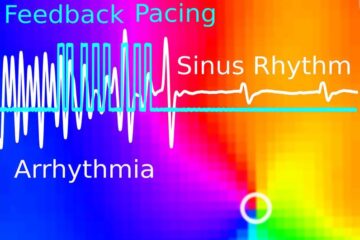Children under 3 can't learn action words from TV — unless an adult helps

The study, by researchers at Temple University and the University of Delaware, can be found in the September/October 2009 issue of the journal Child Development.
The researchers studied children who ranged in age from 30 to 42 months to explore whether they could learn the names of actions (verbs) from videos. The names of verbs are generally harder for children to learn than names of objects. Yet verb learning is critical because verbs are the centerpiece of sentences, the glue that holds the words together.
Using modified clips from the program Sesame Beginnings, the researchers showed children a video of characters performing unfamiliar actions that were labeled with new words (for example, “Look, she's daxing”). In some instances, the children watched without adult support, while in others, they watched with an adult who demonstrated the action that later appeared on the screen. The researchers then measured the children's ability to learn a new verb and apply that word to a new scene.
Without adult support, children under age 3 could not learn the words directly from the program, nor could they understand them when they appeared in a different context within the video. When they watched with an adult who reinforced what they were viewing, they could learn the words. In contrast, children over age 3 were able to learn the verbs from the video program and understand them later, even without an adult interacting with them.
“Learning verbs is difficult,” suggests Kathy Hirsh-Pasek, Lefkowitz Professor of Psychology at Temple University and one of the study's authors. “Young children need social support from adults to help them learn verbs from television. Watching on their own is not as 'educational' as watching with an engaged adult.”
The study's take-home message, according to Hirsh-Pasek: “Amid the plethora of videos in the marketplace aimed at children under 3, our findings caution against using videos to teach language to very young children.”
Research for this study was supported by the Eunice Kennedy Shriver National Institute of Child Health and Human Development and the National Science Foundation.
Summarized from Child Development, Vol. 80, Issue 5, Live Action: Can Young Children Learn Verbs From Video? by Roseberry, S, Hirsh-Pasek, K, and Parish-Morris, J (Temple University), and Golinkoff, RM (University of Delaware). Copyright 2009 The Society for Research in Child Development, Inc. All rights reserved.
Media Contact
More Information:
http://www.srcd.orgAll latest news from the category: Studies and Analyses
innovations-report maintains a wealth of in-depth studies and analyses from a variety of subject areas including business and finance, medicine and pharmacology, ecology and the environment, energy, communications and media, transportation, work, family and leisure.
Newest articles

Wildfire danger to increase due to climate change
WSL Institute for Snow and Avalanche Research (SLF) researchers expect an elevated wildfire danger in the Alpine Foreland from 2040 onwards due to changing meteorological conditions. The danger currently remains…

Advanced Brain Science Without Coding Expertise
Researchers at Helmholtz Munich and the LMU University Hospital Munich introduce DELiVR, offering a new AI-based approach to the complex task of brain cell mapping. The deep learning tool democratizes…

Gentle defibrillation for the heart
Using light pulses as a model for electrical defibrillation, Göttingen scientists developed a method to assess and modulate the heart function. The research team from the Max Planck Institute for…





















